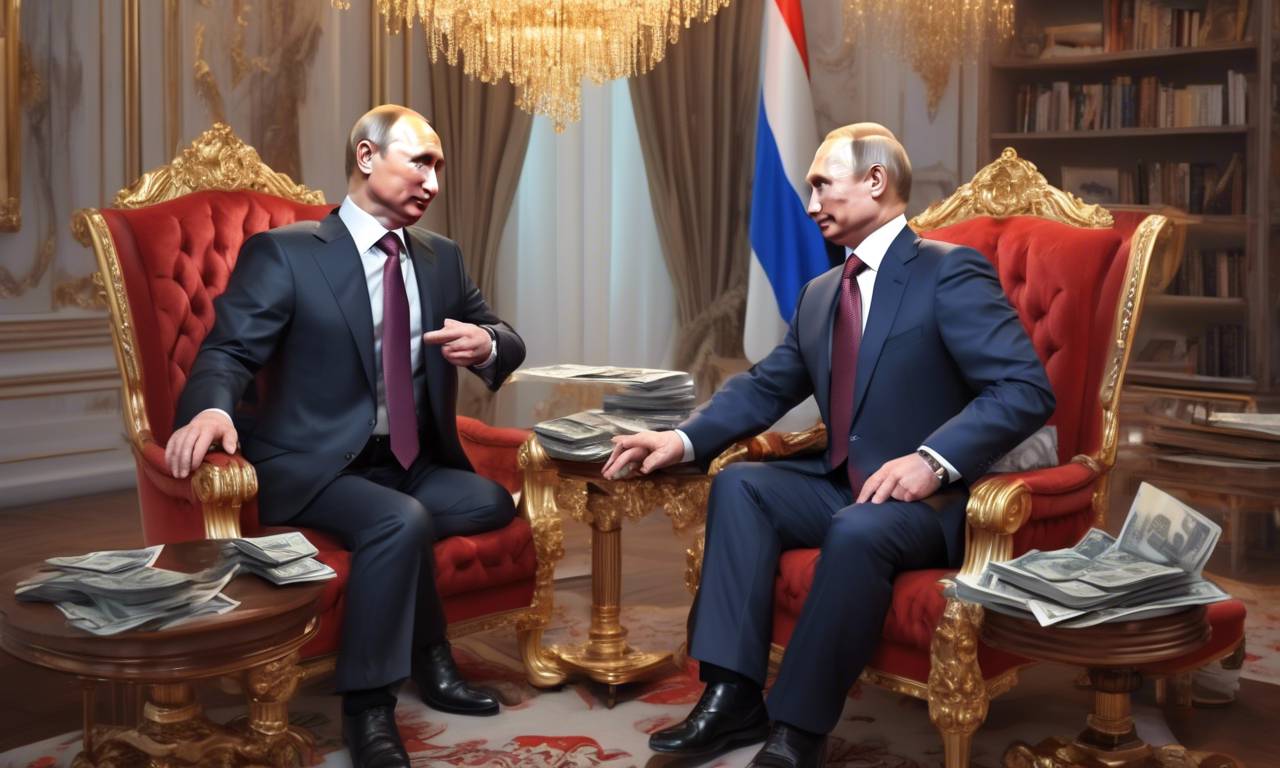Russian President Putin Approves Law Allowing Digital Assets in International Payments
Russian President Vladimir Putin has signed a landmark law that permits companies in the country to use digital financial assets, including the digital ruble, in international payments. The law aims to provide domestic firms with the opportunity to utilize digital tokens and central bank digital currencies (CBDCs) as a means to bypass economic sanctions.
Fast-Tracking the Bill
The bill was swiftly passed through the State Duma, the lower Russian parliamentary house, in late February. After going through its second and third readings in the Duma, it was quickly forwarded to the upper house, the Federation Council, on March 6. The State Duma’s Committee on the Financial Markets played a key role in developing the legislation and approved important amendments on February 21.
According to reports from Russian media outlet RBC, the law will come into effect upon its official publication, with some provisions taking effect at a later date. The law establishes a regulatory framework for conducting foreign trade transactions using digital assets as a means of payment.
Moscow’s Objective: Enhancing Options for International Trading Firms
The Chairman of the State Duma’s Committee on the Financial Markets, Anatoly Aksakov, believes that utilizing digital assets in foreign trade transactions will enable Russian importers and exporters to work more effectively with friendly countries. The implementation of US, UK, and EU-led sanctions has severely restricted Russian banks’ access to international trade and put an end to dollar-denominated trade. However, Aksakov claims that digital asset-powered trade could partially mitigate the impact of these sanctions.
Aksakov also mentioned that several Russian allies have shown great interest in using digital assets and CBDCs in their trade deals with Moscow.
Granting New Powers to the Central Bank
The law signed by Putin on March 11 grants Russia’s Central Bank new regulatory powers over the payments sector. The Central Bank is already the sole issuer of the digital ruble and the primary regulator of the rapidly growing Russian digital financial assets (DFAs) industry. With the new law, the bank will also have the authority to regulate transactions made using digital financial assets.
Under the law, DFA issuers must provide the Central Bank with information about asset recipients. Additionally, firms that use DFAs and CBDCs in payments will be obligated to record all transactions on a newly created information system. Russian law recognizes various digital assets as DFAs, including digitized commodities and securities, digital rights, and digitized monetary claims. The law also allows investors to purchase digital shares in unlisted Russian companies.
Potential Challenges for Foreign Residents
Before this new law, Russian legislation did not have provisions for using DFAs in foreign trade. However, some experts have urged caution, noting that firms are required to register all DFA-related accounting on Russian systems. Moreover, there are no provisions for overseas DFAs in the law, which may pose obstacles for non-Russian residents interested in engaging in DFA and CBDC-related business with Moscow. Reciprocal laws from Putin’s side would be necessary to address this issue.
Hot Take: Expanding Opportunities for International Trade with Digital Assets
Russian President Vladimir Putin has signed a groundbreaking law allowing companies in Russia to use digital financial assets, such as the digital ruble, for international payments. The move is seen as an attempt to help domestic firms navigate economic sanctions by leveraging digital tokens and central bank digital currencies (CBDCs).
Moscow aims to enhance options for international trading firms by enabling them to work more effectively with friendly countries and partially mitigate the impact of sanctions. The law grants Russia’s Central Bank new regulatory powers over the payments sector and establishes a framework for conducting foreign trade transactions using digital assets as a means of payment.
While this law presents opportunities for Russian businesses, there may be challenges for foreign residents interested in engaging in DFA and CBDC-related business with Moscow. It remains to be seen how trading partners will respond and if reciprocal laws will be enacted to facilitate international trade involving digital assets.





 By
By
 By
By
 By
By

 By
By
 By
By